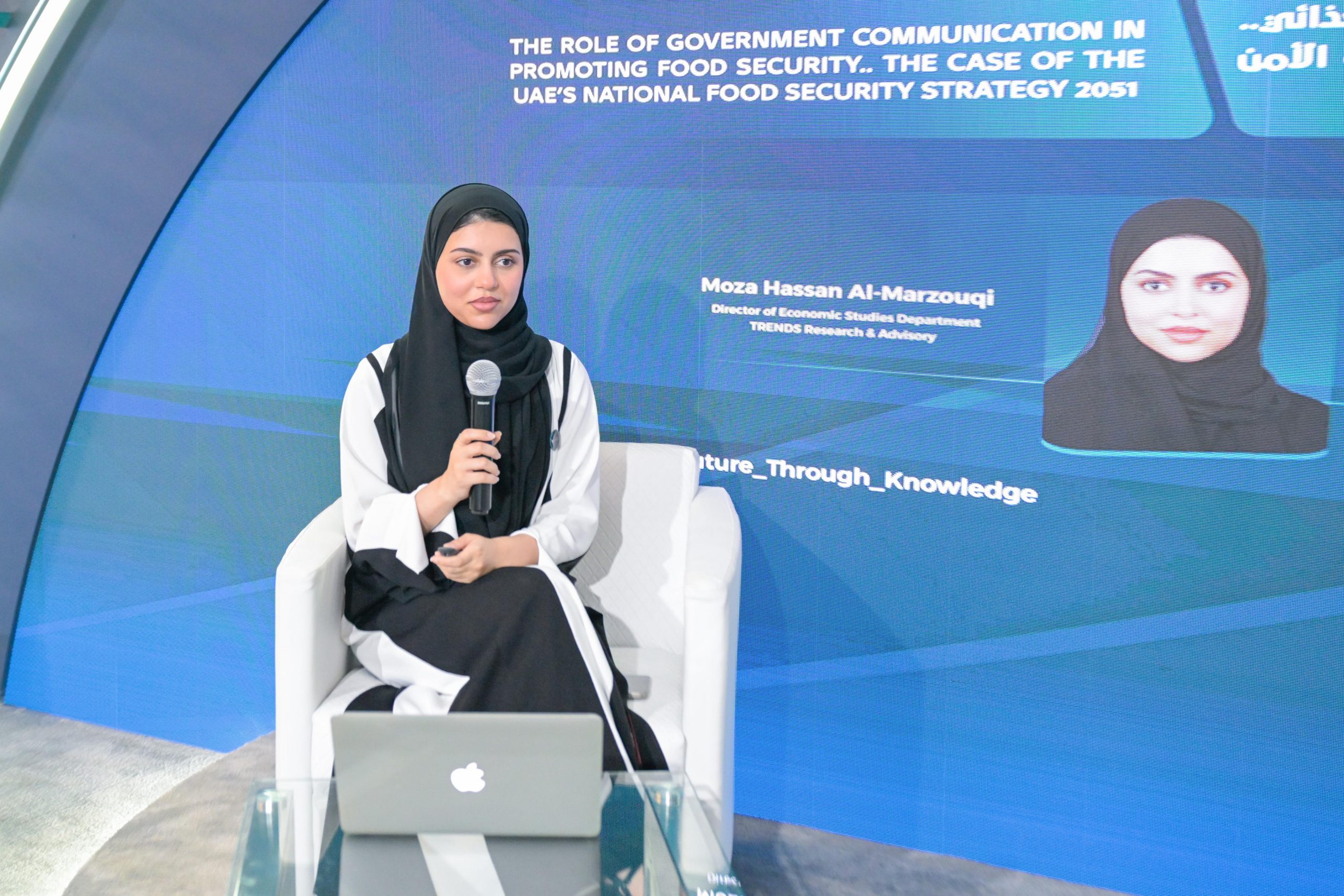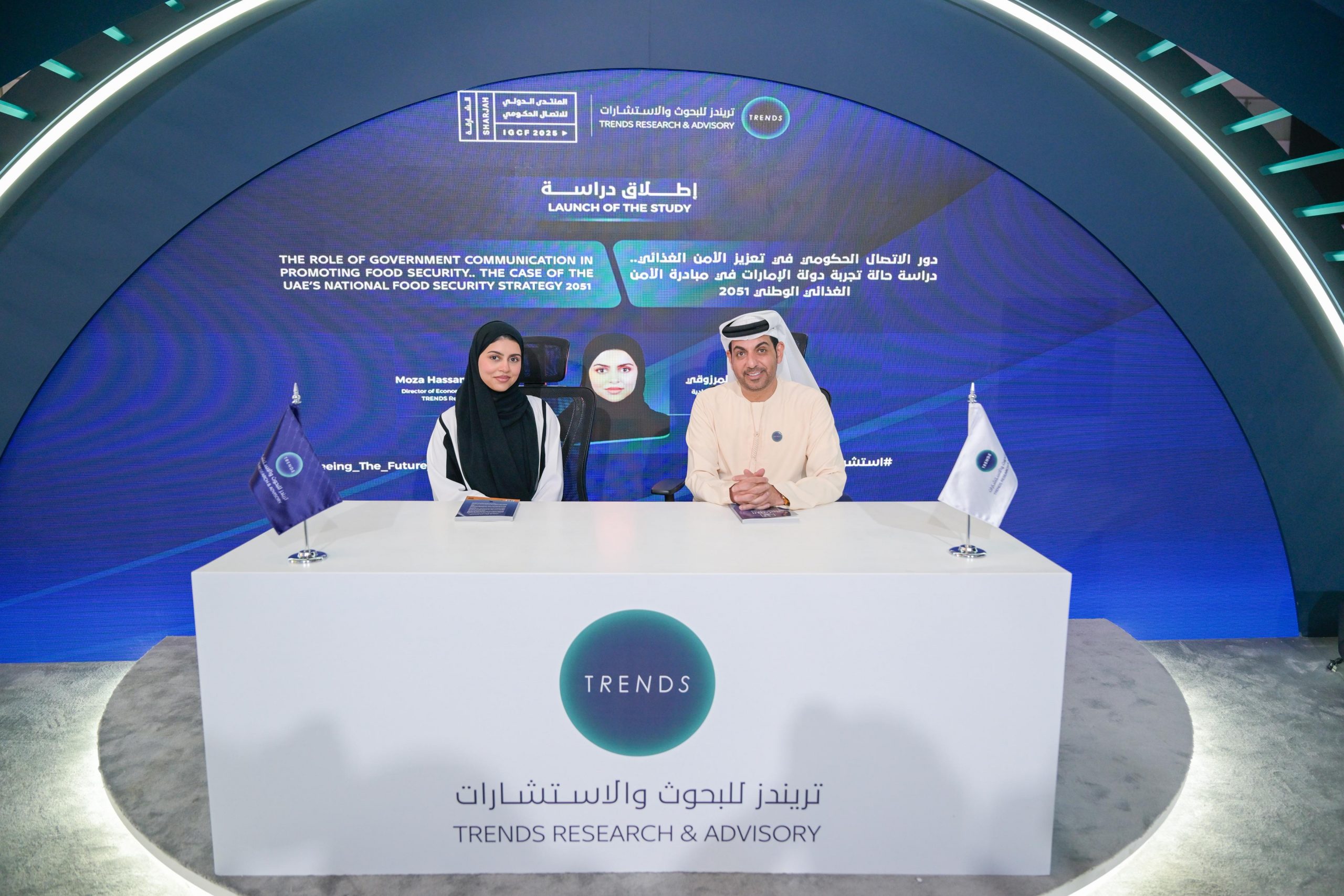TRENDS Research & Advisory launched an in-depth analytical study titled «The Role of Government Communication in Promoting Food Security.. The Case of the UAE’s National Food Security Strategy 2051». The study analyzes the government communication strategies employed to enable the UAE community to engage with issues of food and resources, while also assessing the effectiveness of these strategies in achieving behavioral change and the desired economic and social outcomes.
The study was launched at the conclusion of TRENDS’ participation in the 14th edition of the International Government Communication Forum (IGCF) in Sharjah. The launch was followed by a panel discussion at the TRENDS platform, during which Mouza Hassan Al-Marzooqi, Director of the Economic Studies Department at TRENDS, presented the main themes of the study, its significance, and the key scientific recommendations it put forward.

Developing Government Messages
Al-Marzooqi stated that the study concluded that the UAE has strengthened its efforts in promoting government communication to achieve food security and eliminate all forms of waste. This includes developing government messages, enhancing targeting methods to influence individual behaviors that ensure optimal food recycling, supporting local food production practices, and developing communication tools to achieve resilient food safety within companies through capacity building and reliance on enhanced digital systems.
She noted that the UAE has sought to enhance proactivity in government communication by relying on digital media and media content creation, as well as developing food-related messages that prevent waste. This also involved empowering strong food safety media systems and integrating traditional and digital channels, while leveraging augmented reality and artificial intelligence technologies to achieve effective public outreach.
The study further highlighted several lessons learned from the UAE’s experience in promoting food security, including integration of communication across national institutions, the use of multimedia by combining digital and traditional media, tailoring messages to different audience segments, and conducting periodic assessments of behavioral and economic impact.

Recommendations to Enhance Food Security
The Director of the Economic Studies Department at TRENDS noted that the study recommends supporting the development of communication campaigns to strengthen the national food security strategy. This can be achieved through the increased use of artificial intelligence technologies to analyze audience behavior and customize communication messages, incorporating food security and smart agriculture concepts into school curricula, and creating interactive content targeted at children and young people—given their influential role in shaping future food behaviors.
Al-Marzooqi added that the study emphasizes the importance of designing awareness campaigns that showcase success stories of local farmers and technological projects, as well as expanding partnerships with civil society institutions and the private sector to enhance the horizontal reach of communication messages. Moreover, it stresses the integration of government communication into national food security policies to ensure consistency and alignment between communication messages and actual practices.




